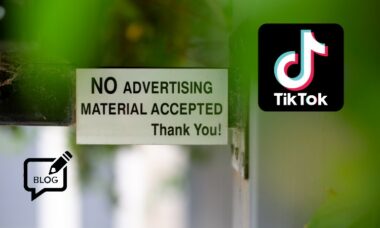 The UK Advertising Standards Authority (ASA) has once again been policing the marketing of vaping products on the social media platform TikTok.
The UK Advertising Standards Authority (ASA) has once again been policing the marketing of vaping products on the social media platform TikTok.
Although certain informational posts can appear on other social media platforms, all vaping-related content has been deemed unwelcome on TikTok by UK authorities as the platform’s algorithms for browsing and suggested content cannot guarantee it will not appear before under-age social media users. The platform itself does not permit branded paid-for ads, though user-generated content is still possible.
TikTok said all the posts violated various terms and conditions. The social media platform said that three of the four companies pulled up by the ASA had violated its terms and conditions on prohibiting “the facilitation of trade of tobacco products, including vapes/e-cigarettes”, while the fourth violated its policy on branded content.
Given this, it would seem no difficult task for social media sites to self-police such content. But the nature of social media means it is rarely worth a company’s while to do so. After all, the companies would be removing engagement, the primary method by which they measure value for advertising – their main source of income – while increasing their own costs.
It’s the same reason why sites like Twitter and Facebook have effectively failed to deal with misinformation or issues like hate speech. (Next to which a couple of ads marketing disposable vapes certainly pale in comparison.)
Is there any point to these types of cases?
There is also the age-old argument about whether there is any point to the ASA even pursuing cases like these. The ads are long gone, and any impact they had one way or the other has certainly dissipated. The adverts in the most recent spate of ASA rulings were mostly from mid-May, with one as recent as 1st June and one as old as 24th March.
This suggests a certain pointlessness to policing a medium where the average half-life of content is measured in hours, sometimes even minutes.
And the fact remains that companies routinely ignore the ASA’s rulings. For example, one of the companies said it had seen other vape shops advertising on TikTok and so thought it was acceptable.
Meanwhile, one of the Chinese vaping companies responsible for a paid partnership with an influencer simply did not respond to the ASA’s inquires into the matter.
And there is simply nothing the ASA can do aside from say the ad should not appear again in its current form. That’s not much of a deterrent to others or, indeed, to the same company behaving similarly in the future.
Whose fault is it this time?
It does not seem likely such social media marketing will stop any time soon. It must be measurably effective to some degree (or else market forces would have long since stopped it), and regulatory enforcement has little to no effect.
And even if all the companies were to, say, join in with one of the various industry organisations calling for a more responsible approach to marketing and selling vaping products, it may not spell the end of such posts on sites like TikTok.
One of the companies said it had not contacted the influencer who had put up the paid post itself and did not have a direct or active working relationship with them. The company had told the marketing agencies it had taken all necessary steps to ensure marketing practices were abiding by ASA guidelines, which included not using TikTok as a marketing tool.
But then, the company “did not provide further details of the agencies they worked with, nor any further information about communication the agencies may have had with the influencer, such as [the] brief or any other marketing instructions [it] had given or requested” – again, something the ASA seemingly could do nothing about. So the exact amount of knowledge and involvement the company may have had in the marketing actions remains something of a mystery.
– Freddie Dawson ECigIntelligence staff
Photo: Emily Wade






